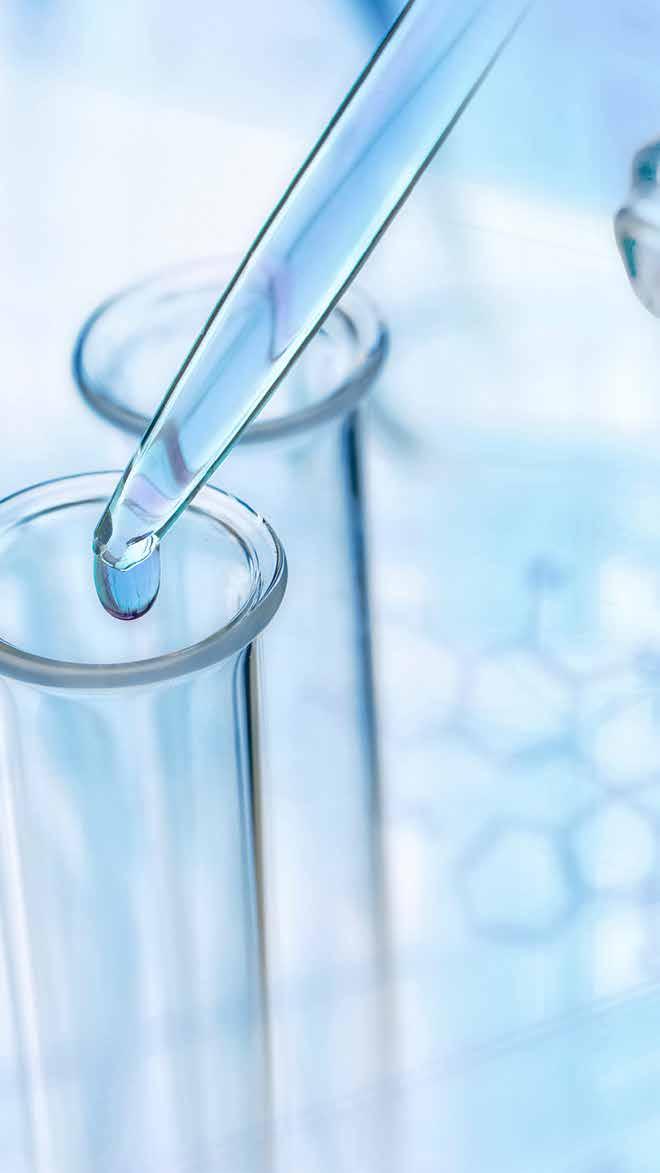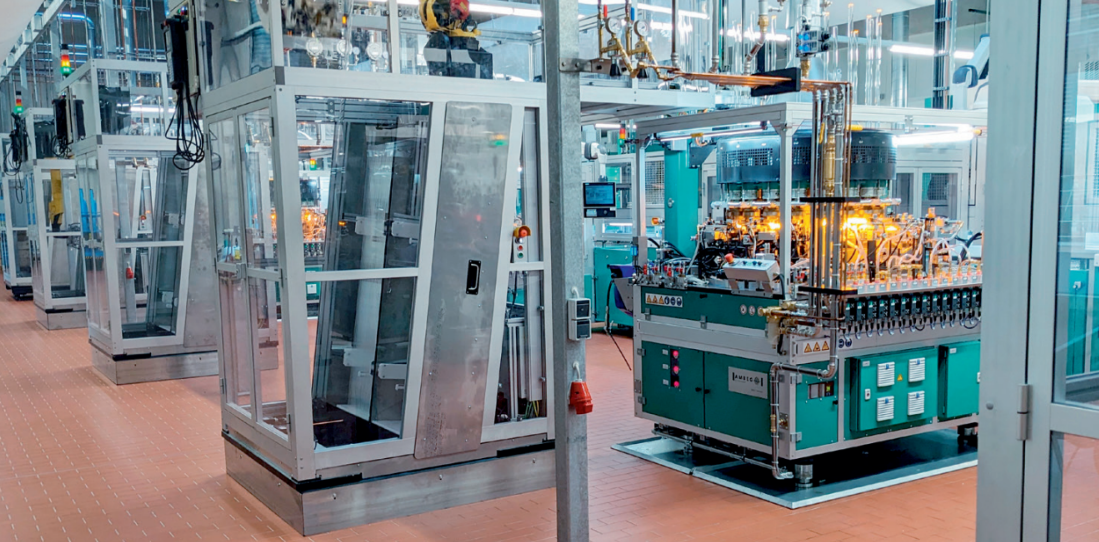
5 minute read
Tradition and Innovation with international excellence
On the road to success with heat recovery
Müller + Müller is a company with a rich tradition. Founded 100 years ago in the Thuringian Forest and rebuilt in Holzminden at the end of the 1940s, it has grown to become part of the international DWK Life Sciences Group. The company is a leading manufacturer of primary packaging made from tubular glass, particularly vials, for the global pharmaceutical industry. These high-quality vials are crucial for various applications, including COVID-19 vaccines.

As the headquarters for the Pharma Packaging division within the DWK Life Sciences group, Müller + Müller is poised for significant expansion both in Holzminden and internationally in the coming years. A major step in this direction was taken with the construction of Hall 4, completed in 2023. Florian Müller-Stauch, Managing Director at Müller + Müller since 2015, explains: “Currently, around 300 million vials are produced annually at the Holzminden production site on state-of-the-art production lines.”
High quality requirements
Müller + Müller offers a wide range of glass vials from 2 ml to 40 ml, with various neck finishes (injection vials or screw cap vials). The raw material for the vials consists of 1.5-metre-long glass tubes, which are processed vertically on state-of-the-art production lines according to customer specification. For special pharmaceutical products, Müller + Müller has been offering a unique silicone coating process for glass vials for several years: this invisible coating prevents the product from adhering to the inside of the glass vials, thereby ensuring optimal emptying.
Dirk Brinkmann, Head of Plant Engineering, explains: “The entire process is continuously monitored by specialised personnel in a Class 8 cleanroom as per ISO 14644-1. The use of high-tech measuring systems guarantees consistently high quality.” Compressed air plays an important role in the siliconisation process (blowing out of rinsing liquid), as well as throughout the current 50 production lines (process air, control air, pneumatic handling). “The processes require a compressed air pressure of approximately 6 bar and a flow rate of 75 to 80 m³/min. Without compressed air, none of these processes can operate,” says Dirk Brinkmann. Therefore, the close working relationship with KAESER, which has connected the two companies over the last 40 years, is very important to him.

Throughout this time, the company has continuously grown and expanded, and the compressed air station has been extended and modernised accordingly more than once. When the siliconisation department was added in 2015 and compressed air demand increased yet again, the previous station gradually reached its limits. The decision to renew the compressed air station was made in 2021 as part of the planning for construction of the new Hall 4, which was to house seven new production lines in the future. These new systems were put into operation at the end of 2023, and the new compressed air station from KAESER has been reliably performing its duties ever since.
Highlight: Heat recovery
From the outset, maximising energy-saving potential was a priority. This made KAESER rotary screw compressors an obvious choice, as their optimised SIGMA PROFILE screw rotors enhance performance when it comes to specific package input power. Highly efficient IE4 motors further reduce power consumption, complemented by the loss-free 1:1 direct transmission of motor power to the compressor airend. The SIGMA AIR MANAGER 4.0 master controller ensures that the four DSDX 305 rotary screw compressors, including one equipped with a frequency converter, operate together precisely, in balance, and with maximum energy efficiency.

The SECOTEC TG 780 refrigeration dryers also provide exceptionally efficient operation thanks to their energy-saving control: in partial load operation, excess cooling capacity is stored in the thermal mass and can be used later on for drying without the need for additional electricity consumption.
The highlight of this advanced compressed air station is its ingenious heat recovery system. Designed, planned and implemented with exceptional efficiency, it ensures that the company’s heating needs are fully met during production without the need for fossil energy sources. The 2000 m² warehouse is directly heated using exhaust air at 60 °C. Additionally, plate-type heat exchangers are used to relieve the heating system with the warm water that they generate. Therefore, the heating system only activates when no energy is available from production, such as on weekends. “By efficiently using both heat recovery systems (air and water) and reducing maintenance costs, we now benefit from an annual saving of approximately €40,000,” concludes Dirk Brinkmann with satisfaction.









